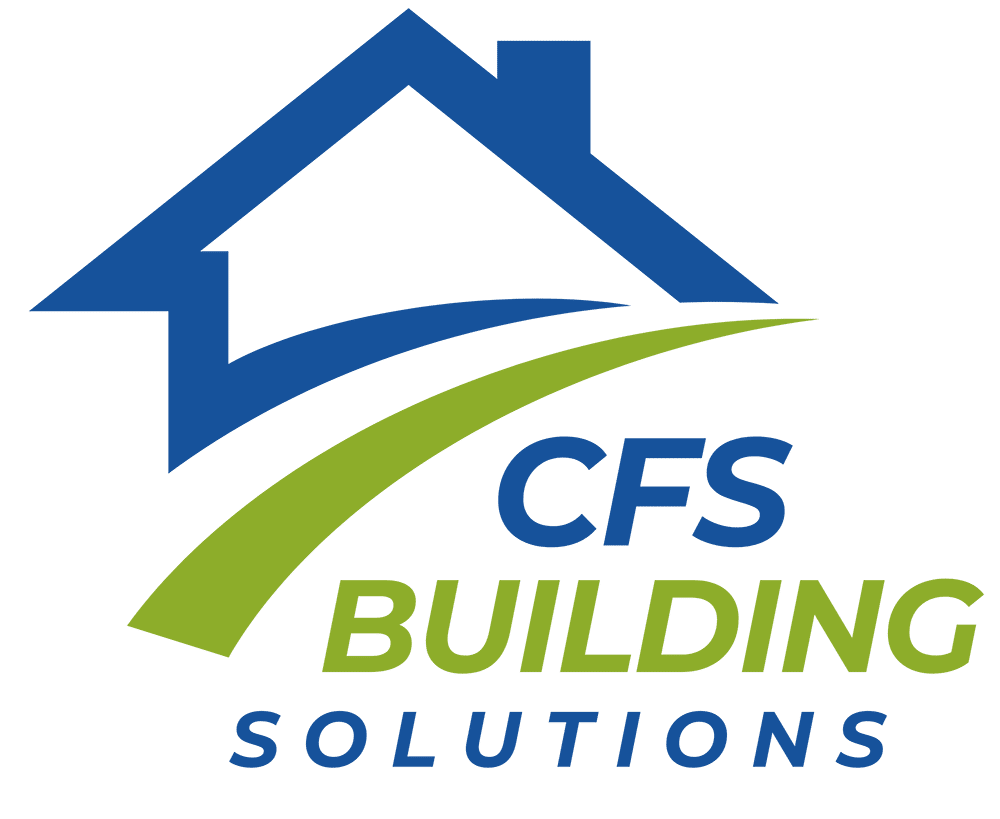How Big Can I Build Without Needing Permits?
Discover the Freedom to Create Your Perfect Personal Space Without the Hassle
Thinking about connecting utilities?
If you’re using an extension cord for power or a hose for water, learn what’s allowed and how to stay compliant!
To remain compliant when setting up a small space without permanent utility connections, here’s what is generally possible:
- Power with an Extension Cord:
Using an extension cord for temporary power is typically allowed as long as it’s not a permanent solution. Make sure the cord is rated for outdoor use and heavy-duty enough for the appliances or devices you’ll be using. For permanent power, a licensed electrician would need to install a dedicated electrical system, which requires a permit. - Water with a Hose:
Connecting water with a hose can be permissible if it’s for temporary or non-permanent use, such as for gardening or occasional water needs. If you need continuous water supply for fixtures like sinks or toilets, permanent plumbing will require a permit and proper installation by a licensed plumber. - Heating and Cooling:
Portable heaters or air conditioning units that plug into a standard outlet may be used without additional permits. However, installing permanent HVAC systems will likely require a permit and professional installation. - Waste Disposal:
If you plan to use a portable system like a composting toilet, this may not require a permit. However, installing a permanent septic system or sewer connection would require local approval and permits.
In summary, for temporary or portable connections like extension cords or hoses, it’s often fine, but anything involving permanent utility installations (electricity, plumbing, HVAC) will generally require permits. Always check local regulations to ensure compliance.
Create Your Own Personal Space
A Place to Get Away or Get Things Done
Imagine having a personal sanctuary right in your backyard—a space where you can escape, focus, create, or simply unwind. Whether you need a quiet spot to work, a cozy place to relax, or a dedicated area for your hobbies, our small spaces are the perfect solution. Built with high-quality materials and designed for easy assembly, these versatile structures offer endless possibilities for adding functionality to your property.
Why Choose Our Small Spaces?
Our small spaces are more than just sheds. They are the ultimate blend of style, durability, and ease, designed to fit seamlessly into your lifestyle. Here’s why they are the perfect solution for your personal retreat:
- No Permits Required in Most Areas! In many states across the U.S., you can build a structure up to 200 square feet without needing a building permit. This means you can quickly set up your space without the hassle of extensive paperwork. Be sure to check with your local authorities, as rules may vary by location.
- Versatility Meets Practicality Whether you’re seeking a quiet workspace, a home gym, a yoga studio, or a creative workshop, our customizable small spaces can be tailored to your needs. Think of it as your personal getaway—without ever having to leave home.
Hassle-Free Construction – Delivered to Your Door
Our small spaces are designed for simplicity and convenience:
- Easy Assembly: The steel frame system is designed for quick and easy setup. Full instructions and all the necessary hardware are provided, making it possible to erect the structure with minimal help. In fact, only two people are needed to unload the materials and get started.
- Expert Assistance: To ensure your project goes smoothly, a specialist will be available for up to two days to assist with the assembly and provide training on the framing system.
What’s Included in Your Small Space Kit
Each small space kit includes:
- Cold-Formed Steel Frame: A durable and superior alternative to traditional wood framing, providing long-lasting structural integrity.
- Sheathing Options: Choose from a variety of exterior finishes that best suit your style.
- Full Instruction Guide: Step-by-step instructions make assembly straightforward and stress-free.
- Hardware Included: Everything you need to assemble the framing system is provided.
- Permit-Ready Blueprint Package: If required, we provide a complete set of engineering and architectural blueprints for permit submission, including:
- Structural engineering and calculations
- Foundation engineering and blueprints
- Architectural and site plans
- MEP (mechanical, electrical, and plumbing) plans
- Energy compliance documentation
Eco-Friendly & Built to Last
Our small spaces are not only functional but also environmentally conscious:
- Fire-Resistant: The steel frame is designed with a high melting point, providing superior fire resistance.
- Termite and Rot Proof: Unlike wood, our steel frames are resistant to termites, mold, and rot, ensuring your space remains durable in any environment.
- Low Maintenance: With minimal upkeep required, you can enjoy your personal space without worrying about repairs or decay.
- Sustainable Construction: Choosing steel framing supports sustainable building practices, reducing the demand for wood and helping preserve natural resources.
Utility Hookups
If you plan to add electricity, plumbing, or other utilities to your small space, most localities require a permit. Even if the structure itself does not need a building permit, utility installations typically do. Be sure to check with your local building department to ensure compliance with local regulations.
State-by-State Guide:
Permit Requirements for Small Spaces (Up to 200 Sq.Ft.)
Here’s a general guide to whether or not a building permit is required for a small personal space in each U.S. state. Remember, utility hookups such as electricity and plumbing almost always require permits.
| State | Permit Requirements |
|---|---|
| Alabama | Sheds up to 120 sq.ft. often do not need a permit. Check local zoning. |
| Alaska | Rural areas may allow structures up to 200 sq.ft. without permits. Permits required for utilities. |
| Arizona | Sheds up to 200 sq.ft. in rural areas often do not require permits. Utility hookups require permits. |
| Arkansas | Many counties allow structures up to 120-200 sq.ft. without permits. Utility hookups need permits. |
| California | Structures up to 120 sq.ft. often don’t need a permit. Utility connections will require permits. |
| Colorado | Many counties allow structures up to 120-200 sq.ft. without permits. Utility hookups require permits. |
| Connecticut | Permits often required for structures over 100 sq.ft. Check local requirements for utilities. |
| Delaware | Sheds up to 200 sq.ft. may be exempt from permits, but utility installations require permits. |
| Florida | Most localities allow structures up to 120 sq.ft. without permits. Larger structures may require permits. |
| Georgia | Structures up to 200 sq.ft. are often exempt from permits, but utilities always require permits. |
| Hawaii | Permits typically required for structures over 100 sq.ft. Utility hookups also require permits. |
| Idaho | Rural areas may allow structures up to 200 sq.ft. without permits. Utility connections require permits. |
| Illinois | Sheds up to 120-200 sq.ft. may not require permits in rural areas. Utility connections need permits. |
| Indiana | Structures up to 200 sq.ft. often do not need a permit in rural areas. Permits required for utilities. |
| Iowa | Structures up to 200 sq.ft. may not require permits in rural counties. Utility hookups need permits. |
| Kansas | Sheds up to 200 sq.ft. often don’t need permits, but utility connections will require one. |
| Kentucky | Structures up to 200 sq.ft. may be exempt from permits in rural areas. Permits required for utilities. |
| Louisiana | Permits may not be required for structures under 200 sq.ft. Utility hookups need permits. |
| Maine | Structures up to 200 sq.ft. may be exempt in rural areas. Utility connections require permits. |
| Maryland | Rural areas may allow sheds up to 200 sq.ft. without permits, but utility hookups require permits. |
| Massachusetts | Structures up to 200 sq.ft. may not require permits in some areas, but utilities need permits. |
| Michigan | Rural areas may allow structures up to 200 sq.ft. without permits. Utilities always require permits. |
| Minnesota | Sheds up to 200 sq.ft. may not need permits in rural areas. Permits required for utility installations. |
| Mississippi | Sheds up to 200 sq.ft. may not need permits in many areas. Check for utility hookup requirements. |
| Missouri | Rural areas may allow structures up to 200 sq.ft. without permits. Utilities require permits. |
| Montana | Sheds up to 200 sq.ft. in rural areas often don’t require permits. Utility installations need permits. |
| Nebraska | Structures up to 200 sq.ft. may be exempt from permits. Utility hookups require permits. |
| Nevada | Rural areas may allow structures up to 200 sq.ft. without permits. Permits required for utilities. |
| New Hampshire | Structures up to 120-200 sq.ft. may not require permits. Utility connections need permits. |
| New Jersey | Rural areas may allow sheds up to 200 sq.ft. without permits. Utilities require permits. |
| New Mexico | Sheds up to 200 sq.ft. may not need permits in rural areas. Utility hookups require permits. |
| New York | Some areas allow structures up to 200 sq.ft. without permits, but utilities always require permits. |
| North Carolina | Sheds up to 200 sq.ft. may not need permits in many areas. Utility hookups need permits. |
| North Dakota | Structures up to 200 sq.ft. may not require permits in rural areas. Utility installations need permits. |
| Ohio | Sheds up to 200 sq.ft. may not need permits in some rural areas. Utilities always require permits. |
| Oklahoma | Rural areas may allow structures up to 200 sq.ft. without permits. Utilities require permits. |
| Oregon | Sheds up to 200 sq.ft. may not need permits in some rural areas. Utility installations need permits. |
| Pennsylvania | Rural counties may allow sheds up to 200 sq.ft. without permits. Permits required for utilities. |
| Rhode Island | Permits often required for structures over 100 sq.ft. Utilities need permits. |
| South Carolina | Sheds up to 200 sq.ft. may not need permits in many areas. Utility hookups require permits. |
| South Dakota | Sheds up to 200 sq.ft. may not need permits in many rural areas. Utility installations need permits. |
| Tennessee | Rural areas may allow structures up to 200 sq.ft. without permits. Utility connections require permits. |
| Texas | Many rural areas allow sheds up to 200 sq.ft. without permits, but utilities need permits. |
| Utah | Sheds up to 200 sq.ft. may not need permits in rural areas. Utility installations require permits. |
| Vermont | Some areas may allow structures up to 200 sq.ft. without permits. Utilities require permits. |
| Virginia | Sheds up to 200 sq.ft. may not need permits in many areas. Utility installations need permits. |
| Washington | Rural areas may allow sheds up to 200 sq.ft. without permits. Utility hookups require permits. |
| West Virginia | Sheds up to 200 sq.ft. may not need permits in rural areas. Utility installations need permits. |
| Wisconsin | Rural areas may allow sheds up to 200 sq.ft. without permits. Utility installations need permits. |
| Wyoming | Sheds up to 200 sq.ft. may not need permits in rural areas. Utility installations require permits. |
Ready to Create Your Own Space?
If you’ve been dreaming of a dedicated place to call your own—whether for work, creativity, fitness, or relaxation—our small spaces are the ideal solution. With easy setup, no permits required in most areas, and a durable, eco-friendly design, you can create your personal retreat in no time.
Contact us today to get started and learn how simple it is to create your perfect small space!

